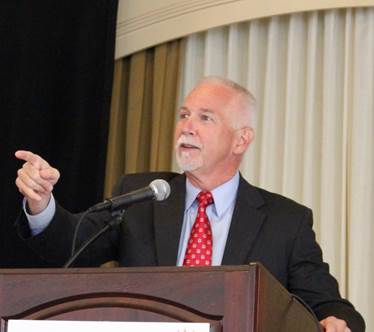The Robert F. Kennedy National Resource Center for Juvenile Justice (RFK National Resource Center) approaches its 10th year anniversary of operations in the fall of 2023. During this decade, we have consistently focused on supporting state and local jurisdictions in their quest to positively reform and enhance juvenile justice system performance and youth outcomes. Indeed, thanks to many of you across more than fifty state and local jurisdictions, we have much to celebrate toward our shared goals for enhancement and improvement of a more fair and just system.
Many of these successes can be found in our newly published report: Keys to Youth Justice Improvement: Demonstration of Practical, Sustainable, Measurable, and Replicable Solutions.
These substantial achievements include aligning policies and procedures with positive youth development principles; implementation of a trauma screening as part of an overall commitment to improved behavioral health services; improved inter-agency collaboration; and departmental restructuring to support probation officer performance.
These examples are among 35 impressive and replicable achievements documented in our new report and produced by our jurisdictional partners that have impacted policies and practices among many who were skeptical of research-informed approaches to youth justice system improvement.
However, there is still work to be done. Recently I became aware of additional research on youth probation published by the National Partnership for Juvenile Services that provides compelling findings related to juvenile probation and juvenile courts’ use of incentives versus sanctions to achieve reductions of recidivism among youth.
Credible research shows that an adolescent, whose brain and judgment are still malleable, is best influenced to change individual or patterns of behavior through a balance of incentives and sanctions emphasizing use of incentives by a ratio of 4:1.

Courtesy of John A. Tuell
John A. Tuell is the executive director for the Robert F. Kennedy National Resource Center for Juvenile Justice at RFK Community Alliance.
Officials in Lancaster County, Nebraska made an all-in commitment to this practice and saw an increase in early successful case closures from 15% to 29% and a corresponding reduction in recidivism of nearly 25% among their probation-involved youth.
I recently facilitated a forum for 60 juvenile probation officers to discuss progress on reforms. Many voiced skepticism that incentives could be used to change behavior more effectively than punishment. The prevailing sentiment was a perspective we hear far too often: “I believe in accountability and the only way we can achieve that is through filing probation violations and using detention as a sanction.”
Respectfully, I remarked to the group that their position did not have data or research to support it. In fact, the successful application of the 4:1 ratio of incentives to sanctions is smart, not soft. The approach does not forsake community safety or victims; it incorporates them into the mission and goals of our practice. And it works!
I am frustrated by the pace of acceptance and transition among probation and court leadership to evidence-based practices such as the use of more incentives than sanctions. It is unacceptable that we tolerate practices that cause harm to youth and their communities rather than furthering our goals of encouraging positive behavior change and enhancing community safety.
Quite candidly, it is past time for probation and court leadership to systematically apply evidence-based practices and approaches to achieve the positive outcomes for which we are accountable. Each day that we lose increases the likelihood that we fail another youth. Given the clear path for replicable, measurable and sustainable positive change laid out for probation and court leadership, it is time for them to seize the brass ring on behalf of the youth and families we serve.
***
John A. Tuell is the executive director for the Robert F. Kennedy National Resource Center for Juvenile Justice at RFK Community Alliance. Previously, he directed and oversaw RFK Children’s Action Corps’ participation and active involvement in the MacArthur Foundation’s Models for Change: Systems Reform in Juvenile Justice Initiative and has held juvenile justice leadership positions within the Child Welfare League of America and the Office of Juvenile Justice Delinquency Prevention.
































